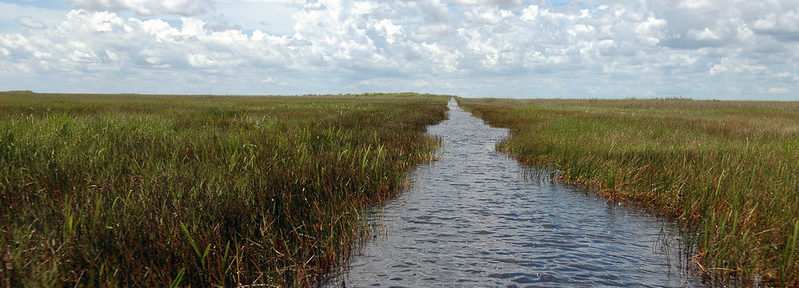by Monica Starr
An Ecology Florida Feature
January 2022
A recent Everglades Coalition Conference outlined the problems in South Florida related to climate change. There are some important facts to highlight from this conference including the fact that sea levels will rise more quickly in Florida than other coastal areas. Similarly, as a state we are anticipating more extreme weather conditions as the result of climate change. This can look like more flood and more droughts, stronger hurricanes and tornados and drastic changes in temperatures. In order to address these future conditions, we must maintain our coastal ecosystems. For example, water management becomes much more difficult with less total rainfall. With warming temperatures, water in general will evaporate faster resulting in less water availability. We must utilize the various storage reservoirs that were previously designed as weather patterns changed.
Without a proper water storage system, we will have an abundance of saltwater, but not enough useable freshwater. For example, the mangroves that typically thrive on the coastline are drowning in the abundance of saltwater. Typically, there is a flow of freshwater from the river that mixes with the saltwater and creates an idea environmental for these seagrass beds. With a lack of freshwater, the seagrass beds are dying in Florida Bay at the southern end of the Everglades. Costal ecosystems can be dramatically impacted by conditions like this. With changes in rainfall, the result is less freshwater in the river and too much saltwater for these mangrove colonies which are truly ecosystem hubs for countless organisms.
In a previous article, we discussed the importance of mangroves, especially in Florida. During the conference it was explained that a single acre of seagrass in Florida stores fifteen times more carbon than a single acre of Amazon rainforest in South America. Our “forests” are located underwater instead of on land, so maintaining that system is so important moving forward. Luckily, there is federal funding for Florida from the recently passed infrastructure bill which can start the process of restoration. During the conference it was explained that Florida has more stored carbon, the heat-trapping greenhouse gas that is causing rising temperatures than the Amazon rainforest. We need to use this information moving forward to truly recognize the state’s impact.
Monica Starr is an intern with Ecology Florida, serving as the Public Communications Facilitator for Ecology Florida News. Monica is a graduate student at the University of South Florida studying Global Sustainability.


Leave a Reply